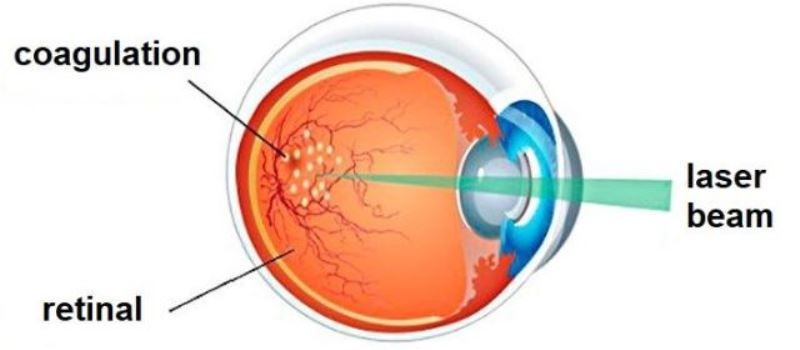Treatment depends on the type of retinopathy and the level of damage
1. Good Control of Blood Sugar, Hypertension & Lipid Profile
2. Regular Follow-Up
Regular follow-up is crucial for the effective management of diabetic retinopathy and ensures patients receive the best treatment for diabetic retinopathy. It allows for careful monitoring so that any changes in the eye can be detected early and treated accordingly. Regular follow-up helps with the early detection and treatment of vision-threatening retinopathy, enabling the prevention of visual loss due to diabetic retinopathy.
3. Injections to the Eye
In case of swelling of the macula (the central area of vision). These medications are approved for usage in the eye by the DCGI & FDA. The drugs available are RANIBIZUMAB injection, AFLIBERCEPT injection and Ozurdex implant. The injections are given using topical anesthesia (drops used to anaesthetize the surface of an eye). The injections can cause mild discomfort, tearing and mild pain for 24 hours. These injections will be repeated as and when required, sometimes along with Laser photocoagulation. Before planning any injection, the patient should inform the treating surgeon about a history of heart disease/ MI/ Stroke or any history of Glaucoma. These factors have a bearing on the choice of injection.
4. Laser Photocoagulation

- Focal laser – It can be done in a few cases of swelling of the retina to stop leakage from weak blood vessels. This treatment is called focal laser which is used only in selective cases
- Pan retinal photocoagulation – This laser is done to shrink abnormal blood vessels. During this procedure which is done spread over 2-3 sittings, the areas of the retina away from the macula are treated with laser burns. It is done on an outpatient basis, some loss of peripheral vision & night vision is possible but the benefits outweigh the risks of the procedure. Laser is an outpatient procedure done by using special lenses which are placed on the eye. Mild discomfort during and after the procedure is normal.
5. Vitrectomy
Vitrectomy is a surgical procedure which is done via small incisions in the eye to remove the blood-stained jelly & abnormal scar tissues. Recovery is variable and the prognosis is determined by the pre-operative status of the eye.
6. General Health Check-Up
All the treatment must be done with a constant check of the general health and the renal status of the patient. Patients with poor systemic status and nephropathy have a worse prognosis and require more frequent monitoring.
Conclusion
All the treatments help to slow the progression, but it is not a cure. Further retinal damage & loss of vision can still occur.
Related Topics:






